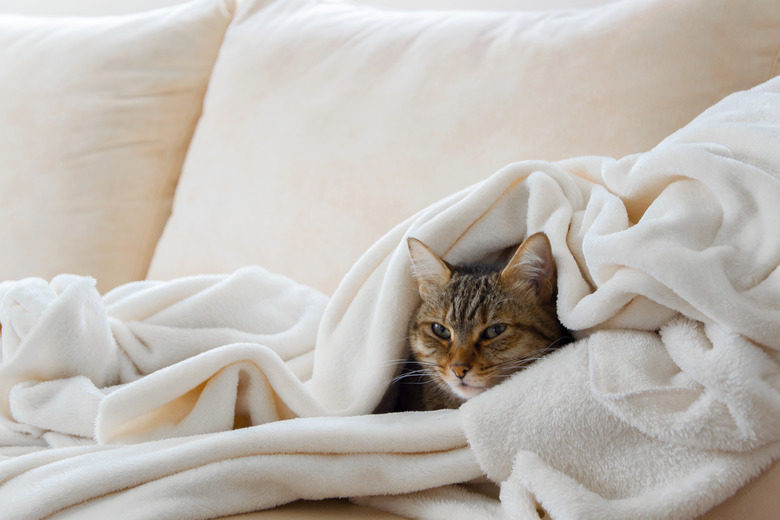Home Remedy For Cat Fever
The normal body temperature for a cat is between 101 degrees and 102.5 degrees. Anything higher than 104 degrees or below 99 degrees needs to be addressed by your veterinarian.
The most accurate way to check your cat's temperature is to use a digital rectal pediatric thermometer. Fevers that exceed 106 degrees can lead to organ damage or death, so immediate medical attention is required immediately.
Fever-causing conditions
Fever-causing conditions
Your cat's temperature can rise through extreme exertion or by being subjected to excessively warm temperatures. These types of temperature increases are usually temporary and stabilize when your cat reduces her physical activity or moves into a cooler environment.
Like other animals, cats can suffer heatstroke, so ensure your pets have access to shaded resting spots and have plenty of fresh water in warm conditions. If your cat exhibits signs of heatstroke, including panting for more than 10 to 30 seconds, moving slowly, rapid heart rate, or labored breathing, remove them from the heat, give them water, and get them to a vet as soon as possible. Heat stroke is a medical emergency, and if untreated, can be fatal.
Cat fever-causing disorders
Cat fever-causing disorders
Prevalent causes of fever in cats include infection, injury, or diseases such as cancer. Changes from disease can show up gradually, and present themselves as physical or behavorial differences. Fever also can be triggered by medications, endocrine or metabolic conditions, fleas, or immune disorders.
In addition to checking your cat's temperature, other indications of fever may include lethargy, decreased food, and water consumption, an unkempt appearance, and labored or rapid breathing. If your cat has a fever that lasts more than 24 hours, they should be referred to a vet, who can administer fluids and recommend cat fever treatment for at home.
Medical diagnostic tools
Medical diagnostic tools
Your vet will conduct different tests to determine the cause of your cat's fever. These may include urine and blood tests, ultrasounds, X-rays, or MRIs. You'll also be asked to provide a detailed medical history.
Let your vet know about recent injuries or illnesses, vaccinations, medications or supplements, or changes in physical behaviors. Some fevers have no known medical cause, in which case your vet may recommend home observation and monitored hydration.
Ensure your cat has enough water — they need to consume about 3.5 to 4.5 ounces per day. A lack of water can cause or exacerbate the problem. Provide multiple bowls of water around your home will encourage and give your feline more chances to hydrate.
Cat fever medicine and treatment
Cat fever medicine and treatment
Infections are usually treated with antibiotics, though the type prescribed for your feline is not the same as those used by humans. Only give antibiotics your veterinarian has ordered. If your cat is dehydrated, the vet may also administer intravenous fluid. If your cat has a disease presenting with fever, your vet will explain the particulars and recommend treatment options.
Once cleared to go home, your vet likely will have you track your cat's food and water consumption, monitor her fever, and possibly administer prescription cat fever medicine. Never give your cat any medication not recommended by your vet. Water, rest, and recommendations made by your veterinarian are the best cat fever treatment to do at home.


